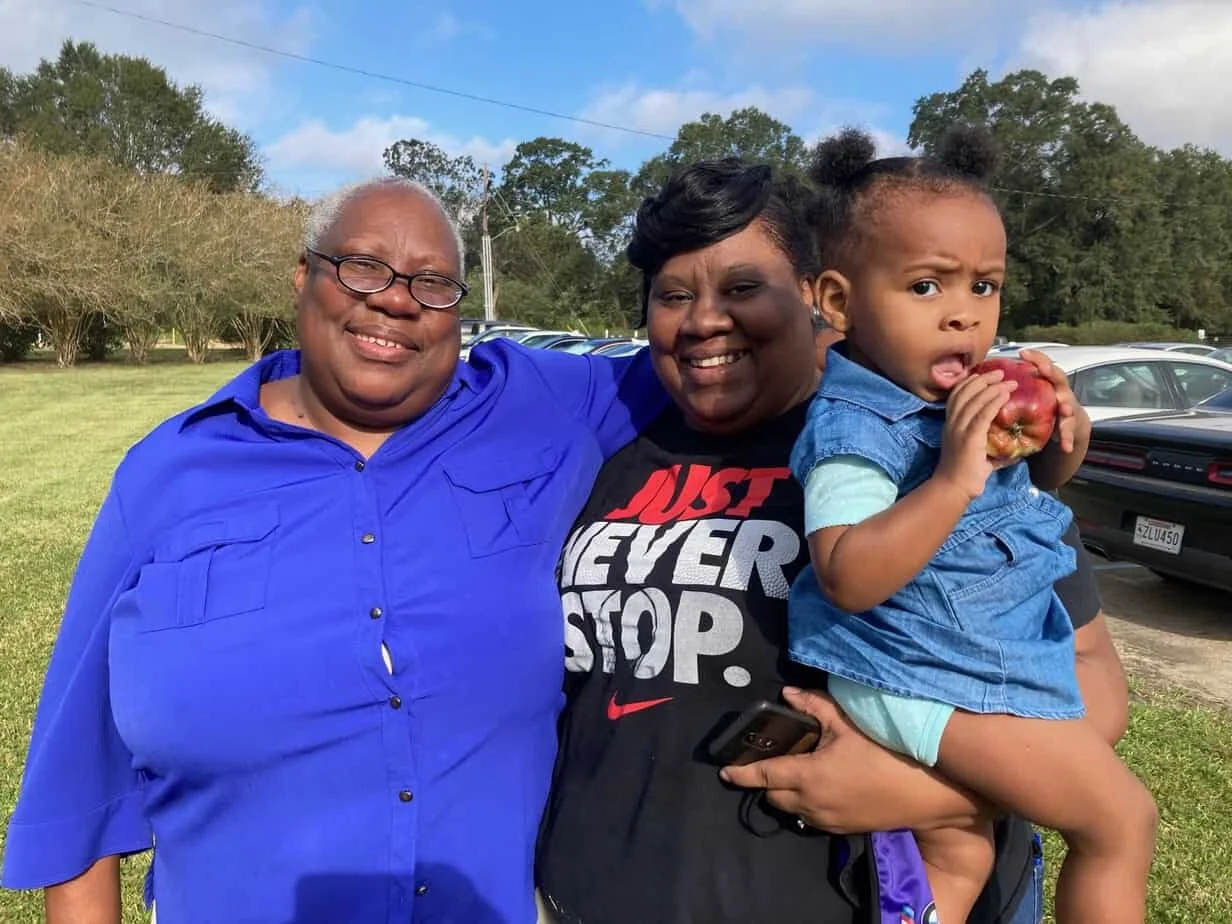Louisiana v. Edna Gibson
Challenging Unjust Sentencing Laws
Edna Gibson (left) with her daughter and granddaughter
Edna Gibson, a victim of domestic violence who was sentenced to life imprisonment by a non-unanimous jury for killing her husband more than three decades ago, was released from prison October 19, 2020 after being granted parole.
David Wheaton, an attorney at the Promise of Justice Initiative (PJI), represented Ms. Gibson at the hearing. He praised the parole board’s decision which made her eligible for immediate release. “The decision by the parole board is a testament to Edna Gibson’s incredible resilience and determination during three decades of imprisonment,” said Wheaton.
Jamila Johnson, Managing Attorney for PJI’s Jim Crow Juries Project, observes: “Edna’s ordeal is a prime example of how Louisiana’s harsh sentencing laws compound the injustice of Jim Crow Juries, condemning thousands of disproportionately Black people to life imprisonment – even though a jury could not agree on their guilt. Even as we celebrate Ms. Gibson’s release, we will continue to fight for the more than 1,500 people still imprisoned and separated from their families due to this racist and unfair practice. It is long past time to restore justice for all.”
The use of non-unanimous jury convictions in criminal trials dates back to the dawn of the Jim Crow era in 1898, when white supremacists in Louisiana came together to write a new constitution. For years, Louisiana and Oregon have been the only two states that allowed people to be convicted of serious crimes without the unanimous consent of a jury. In 2018, 64 percent of Louisiana voters approved Amendment 2, which abolished non-unanimous jury convictions for future felony cases.
Attorneys with PJI are working in partnership with more than 40 pro bono law firms and more than 150 lawyers across the country to restore justice to those still in prison under unconstitutional non-unanimous jury convictions.


